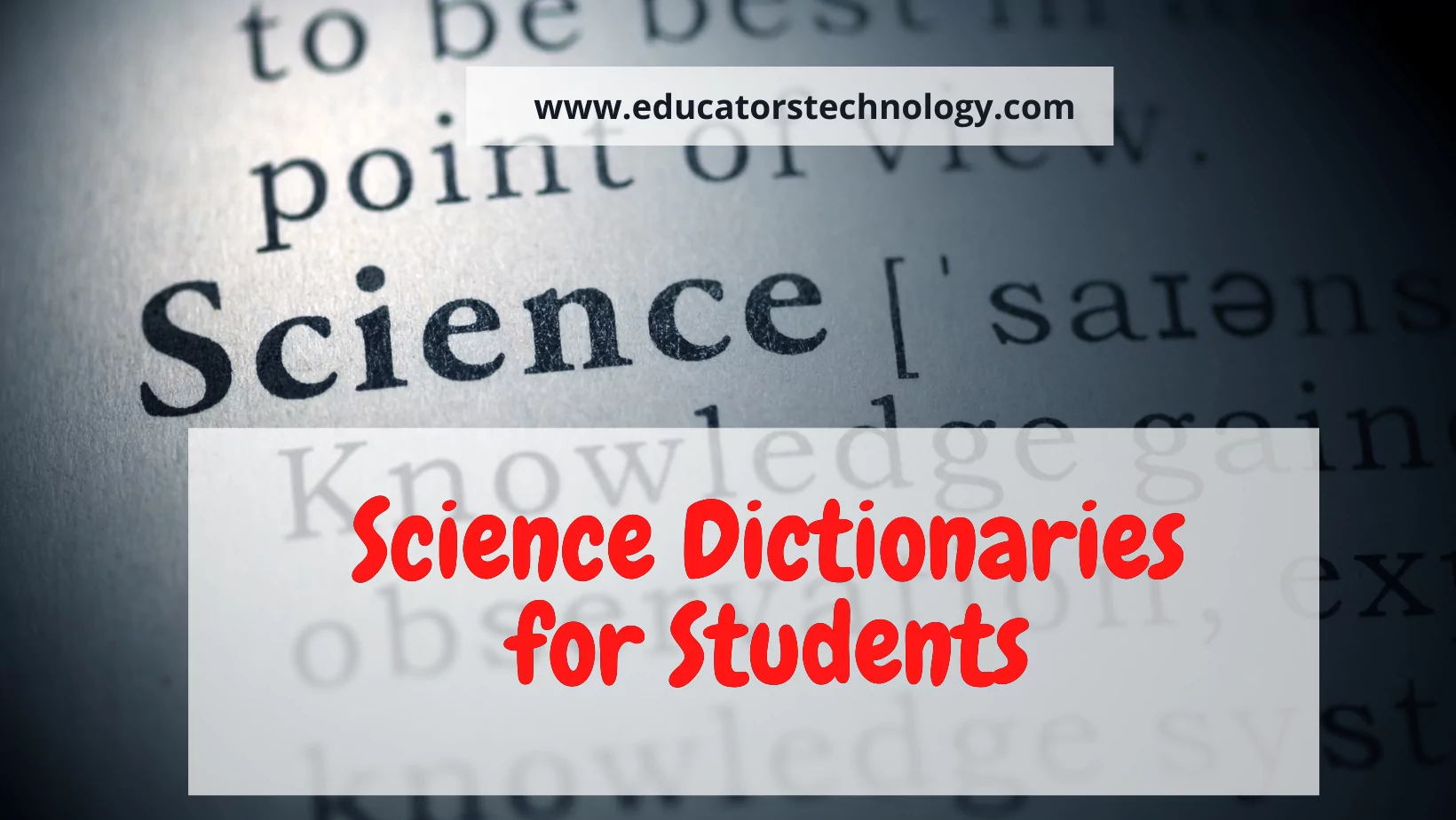The world of science is full of technical terminology and arcane jargon. Often times, understanding scientific jargon becomes in and of itself a learning curve hence the importance of scientific dictionaries.
There are many scientific dictionaries online but not all of them are as good as they claim to be. I did some digging of my own and compiled the initial list below. I hope you and your students will find it helpful. If you have other suggestions to add to this list, share with us on our social media profiles.

Science Dictionaries
Here are our top picks for science dictionaries:
1- World of Science
World of Science provides students with a searchable database that contains a wide variety of scientific terms and definitions. Entries in World of Science are organized alphabetically. Students can use the search bar to search for specific science term, a physical quantity, or a unit. Or, they can click on an alphabetical letter from the chart to access a glossary of the scientific terms that start with that letter.
2- Enchanted Learning
This is definitely a great platform to keep handy. Enchanted Learning features a wide variety of illustrated scientific dictionaries including: astronomy dictionary, botany dictionary, paleontology dictionary, hurricane glossary, landforms glossary, shark dictionary, math dictionary, rainforest dictionary, rock and mineral dictionary, volcano dictionary and more. Students click on the dictionary they are interested in and they will be able to access a glossary of illustrated terms related to the topic of the dictionary.
3- The Science Dictionary
The Science Dictionary (TSD) prides itself on being like Google for Science. When you search for a scientific term, the Science Dictionary retrieves the best possible and most relevant search result for your query. For instance, when I searched for the term Tsunami, I got results from Wikipedia, National Geographic, NASA among others.
As per TSD’s statement, the site “leverages Google’s over one million servers and enormous web index of over 13 trillion web pages to perform its search queries. On top of Google’s search index, The Science Dictionary has implemented a filtering system that determines which websites are trusted, science websites and which websites aren’t.”
4- Visionlearning Glossary
Visionlearning Glossary allows students to search for definitions of scientific terms and concepts. They search for words alphabetically or by discipline. For each of the terms featured in the Visionlearning glossary, a link to the module in which it appears is included. Students can click on the link to see the module. These are peer-reviewed modules that cover a wide variety of science, technology, engineering, and mathematics topics.
Final thoughts
This curated list of online scientific dictionaries offers a valuable resource for students and educators navigating the maze of scientific jargon. From World of Science’s comprehensive database to Enchanted Learning’s illustrated dictionaries covering diverse fields, each platform provides a unique approach to making science more accessible. The Science Dictionary distinguishes itself by integrating Google’s vast web index, offering trustworthy and relevant search results. Visionlearning Glossary adds another layer of educational value by linking terms to peer-reviewed modules, enriching the learning experience. These resources not only demystify the often daunting world of scientific vocabulary but also enhance the educational journey by providing clear, reliable, and easy-to-understand explanations, making them indispensable tools in the realm of science education.




